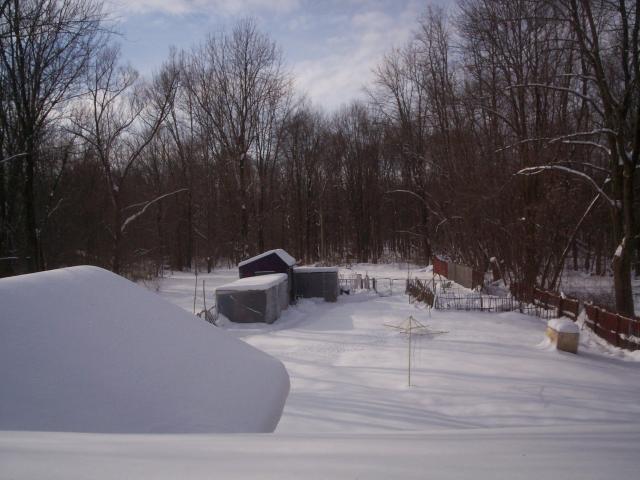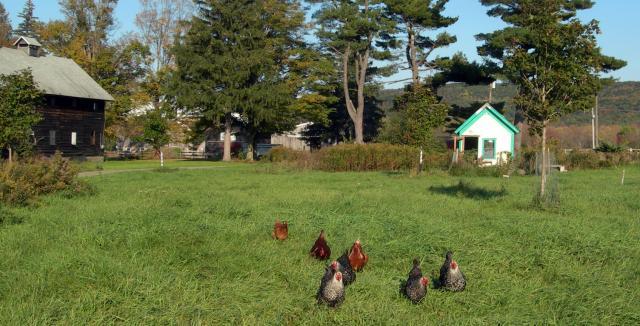I have seen several topics on here about how chickens can handle the cold, and I do believe that to be the case, but I am wondering about keeping their water from freezing when my coop has no electricity? My husband and I are disagreeing on how best to handle the situation. (I am sure no one has ever had that problem before!)

Do they need water at night after they are up on the roost? I want to bring the metal waterer in at night and leave it on our floor which has radiant heat. Then when the husband goes out first thing in the morning to open up the coop (they free range) he can carry it back out there with the warm water in it. The heat is only set to 68°, so it wouldn't be too warm for them.
As it is right now, the waterer freezes up, and even if you add warm water on top (that's what the hub does) the part that allows the water to flow takes forever to thaw. I suppose I could put a bowl of water out there for the night, if they do need water at all times, and then just replace it with a warm waterer in the morning?
I was really hoping that there was some sort of solar water heater, or even an insulated waterer, but they (including the hub) look at me like I'm nuts when I ask at the farm and garden stores if such a thing exists. How about a piece of black neoprene (like from an old wetsuit) with some insulation stuffed in there? Then I could put it out in the sun during the day...just thinking out loud here...
Does anybody have a clever way of dealing with this problem?

Do they need water at night after they are up on the roost? I want to bring the metal waterer in at night and leave it on our floor which has radiant heat. Then when the husband goes out first thing in the morning to open up the coop (they free range) he can carry it back out there with the warm water in it. The heat is only set to 68°, so it wouldn't be too warm for them.
As it is right now, the waterer freezes up, and even if you add warm water on top (that's what the hub does) the part that allows the water to flow takes forever to thaw. I suppose I could put a bowl of water out there for the night, if they do need water at all times, and then just replace it with a warm waterer in the morning?
I was really hoping that there was some sort of solar water heater, or even an insulated waterer, but they (including the hub) look at me like I'm nuts when I ask at the farm and garden stores if such a thing exists. How about a piece of black neoprene (like from an old wetsuit) with some insulation stuffed in there? Then I could put it out in the sun during the day...just thinking out loud here...
Does anybody have a clever way of dealing with this problem?



